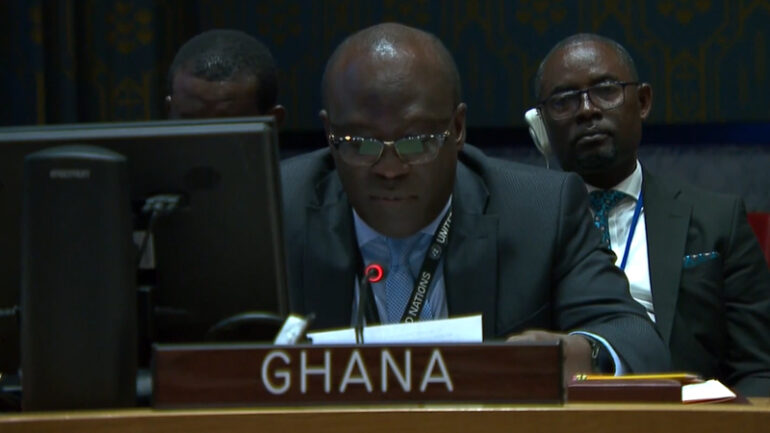UN Security Council Meeting: Briefing on the situation in Afghanistan

Mr. President,
Let me begin by thanking USG Martin Griffiths, Mr. Mar Markus Potzel, DSRSG and Ms. Lucy Morgan Edwards for their respective briefings on the situation in Afghanistan. Today’s briefings provide us another opportunity to assess the situation in that country. We remain deeply concerned by the situation in Afghanistan, especially the condition of women, girls and minority groups. We are appalled by the deliberate policies of the de facto authorities to effectively remove women from Afghan public life, with no woman representation in Government. Today, over 14 million Afghan women and girls have lost their right to go to high school or university, their right to work, and their freedom of movement have been curtailed. Women and girls in Afghanistan need the support of this Council and the international community to preserve their rights and to hold the Taliban to their earlier promise that women would be able to exercise their rights within Sharia law”, including being able to work and study.
After decades of war, recurring natural hazards, chronic poverty, drought, widespread food insecurity, coupled with COVID-19 pandemic, have resulted in millions of Afghans being in need of humanitarian assistance. We note the urgency in meeting the pledge’s made during the flash appeal for humanitarian assistance in Afghanistan and believe that this Council can play its part by urging support from donors for the humanitarian agencies to scale-up their interventions to bring much needed relief to the vulnerable segments of the population, who are currently bearing the brunt of the harsh living conditions and need to develop resilience to re-establish sustainable livelihoods. Ghana expects that the de facto authorities on their part will act in good faith and align itself with global efforts to bring lasting relief to Afghan citizens. In this regard, we acknowledge the untiring efforts of UNAMA and other international organisations who continue to provide critical support on the ground.
We are deeply concerned about the deteriorating security situation and senseless killings in Afghanistan and urge the de facto authorities to stabilize the situation and desist from arbitrary arrests, detentions, tortures, extrajudicial killings, collective punishment and the targeting of members of ethnic, tribal and religious groups on mere suspicion. We are however, encouraged by the hesitant efforts at reconciliation as expressed through the amnesty extended to rival groups who abstain from fighting the Taliban and efforts to reach out to former enemies.
We nonetheless deplore Afghanistan becoming a permissive environment for terrorist groups and militants and providing bandwidth to meet and plan attacks. In this context, we remind the de facto authorities to be mindful of their obligations under international law and to ensure that do not collaborate with terrorists to make Afghanistan a safe haven. We also call on all regional countries to help address the security and other challenges confronting the country, taking into account their proximate interests.
Mr. President,
The Taliban need to understand that this Council and the international community is prepared to act in a manner that would further constrain them should they continue on the course that they have chosen.
In conclusion, we urge the Taliban to stop to all forms of discrimination and immediately remove all restrictions in place in order to give all Afghan citizens equal rights to participate freely in civil and civic life. We urge the authorities to channel their energy on rebuilding the economy of the country for the benefit of the Afghan people which is one of the cardinal purposes of governments.
I thank you
